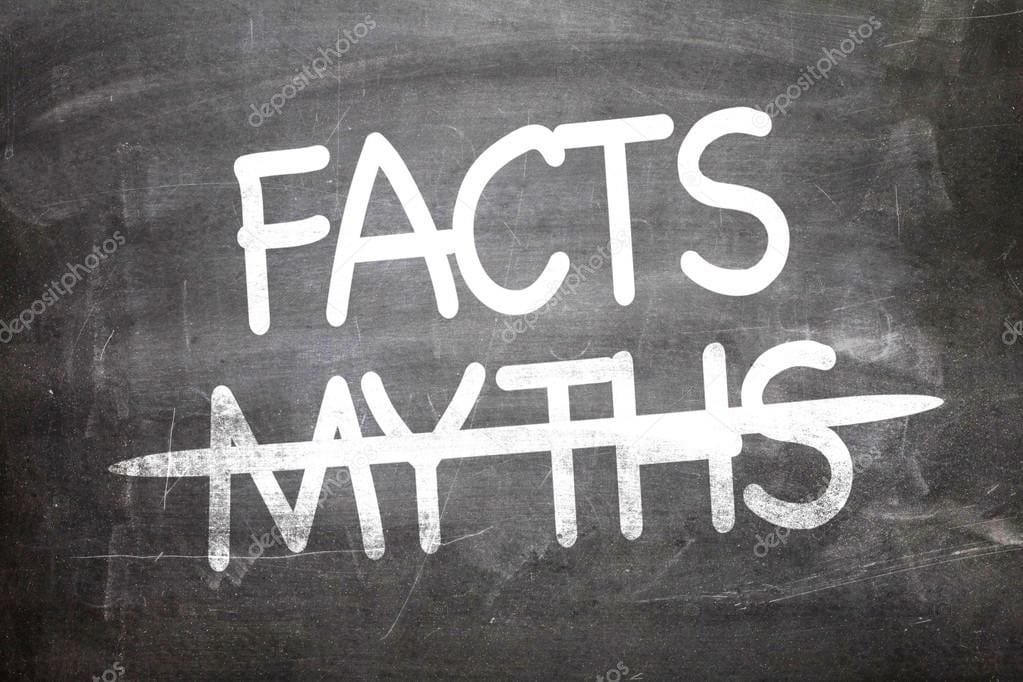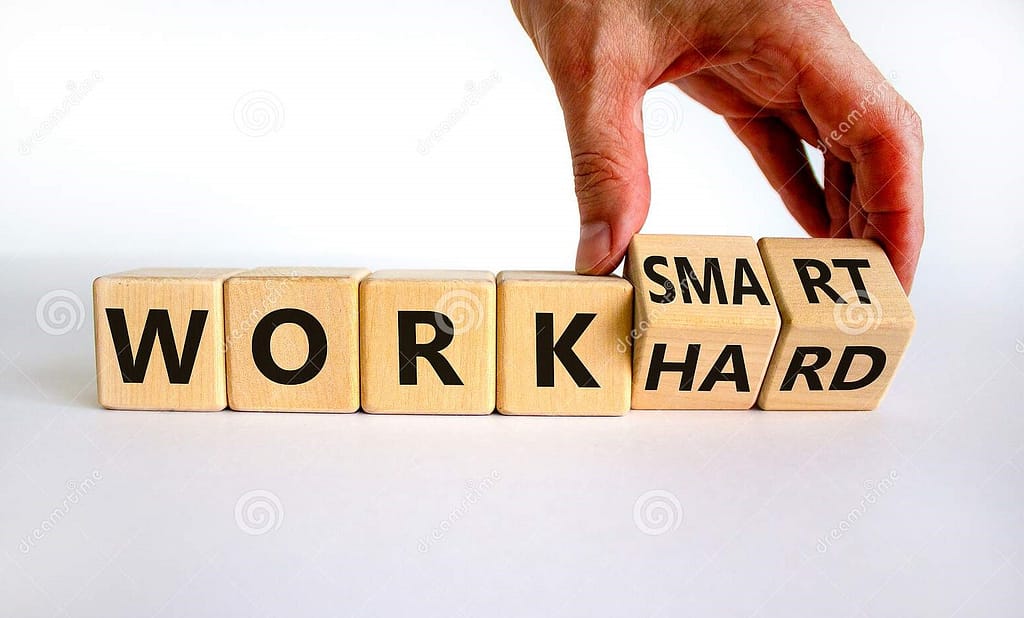It is the very innate desire of each human to be successful and stay on top of things.
It takes a nanosecond to think of an idea, but when it comes to actualizing it, one has to move it through two more levels, the mental –where all the planning is done and the physical, where we have to organize and take the help of others which takes a lot of time.
Our energy gets sapped. We have to constantly seek ways and means to refuel it.
There is a lot of advice which is circulating regarding productivity and when we sit to accomplish the tasks on our list, it seems to be a monstrous uphill task. The truth is it takes time to change our mentality and cultivate some habits that will make us more productive.
And these Myths are the reasons why you make some Mistakes that kill your Productivity .
So how do you know what advice is correct regarding productivity?
I have explored 14 such myths regarding productivity that will help you uncover the truth and keep you from being stuck.
So let us examine these Productivity myths below with truths and some tips to help you.
Get these 23 Productivity Hacks to Work Smarter, Get more done and find Fulfilment and Balance Here !
14 MTHYS THAT MAKE YOU UNPRODUCTIVE
MYTH # 1 – BEING BUSY IS PRODUCTIVE
Some people live under this myth that if they are busy, they will be more productive. As a result of which they take over unnecessary tasks (and keep working over schedule) that bring them little results.
They think that they are using their time effectively by keeping themselves busy.
So you see those who hold this belief do not have clearly defined goals and priorities. They jump at whatever is presented to them without thinking over it carefully.
Productivity is when you do what you are good at and excel at it. You are operating from your strengths and make optimal use of your potential. It gives you fulfillment.
The truth – Productivity is Busyness with a Purpose.
Productive people are busy with a purpose. Productive people have well-defined goals and priorities. Being busy without purpose will keep you stressed and burnt out.
Productive people blend hard work along with smart work to keep a balance in their lives. They have time for self-growth, family, recreation, and keep pursuing things of their interest to keep themselves fulfilled.
They make choices carefully and say ‘NO’ to things that do not serve their purpose.
They believe in doing fewer things and completing them, before taking on other things. They focus on quality instead of quantity.
Some examples of productivity are –setting new goals, creating systems, keeping the workplace organized, planning tasks and activities, improving communications in the workplace, building a team of talented and enterprising employees, helping everyone to use their strengths and talents, setting deadlines for projects, having a structure for work, breaks, meetings, feedback, and communication at the workplace, reducing production costs, creating something new from existing resources or using extra resources to increase the out Putin a short time, improving efficiency to name a few.
These things contribute to the overall progress and prosperity of each individual as well as the organization as a whole.
WHAT YOU CAN DO INSTEAD
Have well-defined goals and priorities in place. Focus on doing things that you are good at. Always make it a rule to operate from your genius.
Say no to things when your plate is full of tasks—or else this will act as a hurdle to your own goals, do not engage yourself in multiple tasks, or else you’ll do justice to none.
Instead of immediately responding to a task, think over it. You can refuse it or schedule it for some time later.
Keep some inaction time or free time for yourself daily for reflection –realize you don’t have to be busy every hour of the day.
MYTH#2 EARLY BIRDS ARE MORE PRODUCTIVE
This is another myth that has been doing rounds for a long. There is a popular belief among people that the early risers are more productive than those that stay up late at night.
Some Productivity Gurus suggest you wake up early and do your most Productive work in the early hours. But it is not so.
The truth -Each person has his own Peak Productive hour when he does his best work.
Research has proved that everyone has their peak productivity hours when they perform their best. Geniuses like Mozart, Shakespeare, Einstein, had their peak productive hours at different times of the day.
It also depends on the type of job that you are doing. Those who work at call centers or hospitals in night shifts must be doing their most productive work during those times.
Some find the early hours like 8 to 9 am productive, whereas others find the afternoon to be their best time and there are even some who find the night time to be their best time. So it varies from person to person.
WHAT YOU CAN DO INSTEAD
You have to find your own best hours during which your energy is at its peak and you perform your best. So know your best productive hours and focus on doing the most important tasks during those hours.
MYTH # 3 -YOU WORK BEST UNDER PRESSURE
Have you noticed some people go carefree for days and suddenly you find them jumping and squealing and falling all over the place, working day in day out just to meet that deadline?
Well, they are the ones who hold the belief that pressure brings the best out of them.
The truth- Working under pressure adds to the extra stress of Urgency.
This adds up to cognitive load and makes it difficult for your brain to perform better.
The major pitfall of working under pressure is that you are constantly haunted by this thought that you are missing the work deadline as a result of which there are more chances of mistakes and poor quality of work.
WHAT YOU CAN DO INSTEAD
The best thing would be to work regularly and consistently with a systematic approach to work, so that you are always in control of things and you do not miss out on important things that will be detrimental to your career, your job, or your reputation.
The quality of work will be much better compared to the quality of work when you do things at the last moment. You will not panic.
MYTH # 4 -DOING ALL THE WORK BY YOURSELF MAKES YOU MORE PRODUCTIVE
That’s another myth. It’s just like working with so much pressure as if it is a one-man show.
There is another point I would like to mention along with this, that some people also believe that to be productive you must get all the stuff done. I would say a Big ‘’NO’’. You must be wise enough to work from your strengths and delegate tasks that you are not good at to others.
The Truth-Though working all by yourself boosts your confidence, but as far as productivity is concerned, one-man show is a productivity killer.
Because if you are addicted to doing all the work by yourself, you will have little time left to invest in your Growth and Progress. Think of a dress factory –where tasks are divided according to expertise. Different tasks like designing an outfit, selecting dress material and purchasing, measuring and cutting, stitching, adding accessories, ironing, packing, and dispatching are all done by different individuals.
You have to grow continually because you are a work in progress. And to grow you need to invest time in your learning and growth.
WHAT YOU CAN DO INSTEAD
Focus on doing those tasks done that you are an expert at.
The best way out will be to make a list of tasks, divide them into separate lists –select tasks that you are good at and tasks that can be delegated to others.
I would suggest that if you have the budget for outsourcing some part of your work to others go for it. In this way, work will be completed faster and more effectively and you’ll get more time for other important tasks and higher things.
Note -Be patient and be trusting of others if you want to master delegation.
MYTH# 5 -MULTITASKING MAKES YOU MORE PRODUCTIVE
Some people hold the belief that doing two or more things at a time will help you to accomplish many things together. One example of multi-tasking is – a person is working on a project as well as cooking in the kitchen or attending to phone calls and emails while doing the project.
.But there is enough evidence to prove it wrong. Here are some statistics to prove that multitasking does more harm than good.
-
Multitasking leads to as much as a 40% drop in productivity. (Bergman, P. (2010, May 20). How (and why) to stop multitasking. Harvard Business Review.)
-
Multitasking causes a 10% drop in IQ. (Bergman, P. 2010, May 20. How (and why) to stop multitasking. Harvard Business Review.)
The scientific evidence against multitasking is overwhelming. Consider the evidence:
-
Studies show that the human brain can’t handle more than one task at a time. Even though we think we’re multitasking, our brains are switching rapidly between tasks. (The Myth of Multitasking. Scientific America. 2009, July.)
-
In a study of Microsoft employees, workers took, on average, 15 minutes to get back to intense mental tasks, like writing reports or computer code, after responding to e-mail or instant messages. (New York Times) It takes more time to get things done when you try to multitask. People who are interrupted – and therefore have to switch their attention back and forth – take 50% longer to accomplish a task. (John Medina, Brain Rules)
-
Multi-taskers make up to 50% more errors. (John Medina, Brain Rules)
-
The average manager is interrupted every three minutes
The truth -Doing two or more tasks that demand equal attention, leads to poor decision making, higher stress because your focus is split between two or three different things. It leads to poor quality of output.
Besides, you are constantly nagged by this thought at the back of your mind that the food may get burnt or the project work may not be accomplished today or you are unable to answer the emails or phone properly.
In this way, you spend more time completing both the works as compared to taking one type of task at a time and focusing on it.
On the other hand, working single-minded on a task makes you feel rested and increases your sense of accomplishment.
If you work on a specific task, you devote all your attention to it. The quality is much better; you work more efficiently and take less time. There is much mental peace too.
Productivity is about quality and not quantity.
WHAT YOU MUST DO INSTEAD
Make a list of tasks, set a priority to them. Take one thing at a time and focus all your time and energy to accomplish it.
MYTH# 6- YOU MUST EMULATE THE SUCCESSFUL PEOPLE TO BECOME MORE PRODUCTIVE
It is another false notion that makes you put these individuals on a high pedestal.
It leads you into believing that they are super-human who are highly perfect and makes you hold on to some high standards of productivity.
The Truth –There there are peaks and troughs with everyone’s energy.
Everyone’s energy gets depleted and they refuel themselves before taking up some new project.
There are always ups and downs in everyone’s lives. No one can be always performing at peak at all the time. We all have to divide our time for our rest recreation, family, professional, financial, and social dimensions.
Idolizing these highly successful people can be very frustrating, copying their tactics may serve as a block to your progress.
Get inspired from their lives instead and see what can work for you.
WHAT YOU MUST DO INSTEAD
You have to perceive things from your standpoint -where you are now, where you want to be next, what are the gaps, and what you need to do to cover them.
Some approaches, tips, and strategies from others can be helpful whereas some might not work.
Do a reality check in between to see what is working for you and what is not. If things are not working for you then think of something else.
If you see things from the point that all are human beings after all, then you get a better idea of the whole picture. What works for one person might not work for the other.
So be wise in making your choices. Think before taking any decision and see what’s working for you and what is not.
MYTH # 7 -THE HIGHER WAGES YOU GET THE MORE PRODUCTIVE YOU BECOME
Well, there are two types of motivation, extrinsic and intrinsic. Extrinsic motivators are rewards, perks, extra money, and prestigious titles. Some first-world countries like America promote this culture of productivity by using rewards, perks, and prestigious titles.
Intrinsic motivators are internally programmed within us.
They are the values we want in life and work towards having.
Perk, bonus or raised salary indeed serves as a motivation, but practically speaking, your company may not always raise your salary.
Think of times, when there will not be a raise in a particular year, ( every company may have its ups and downs and may not raise the salary as expected )then you might not perform well, because at the back of your mind you have tied your productivity with raise in salary.
So tying up productivity with pay, reward or recognition will be very illusory and risky.
The truth – You must love what you are doing and must strive to excel in that, as well as keep learning something new that will help you to advance in your career. That will be more sustainable.
According to a study by the Global Boston Consulting Group, there must be other factors to motivate your productivity, like work appreciation, career development, and a good relationship among employees, etc.
In research conducted on 3500 German school children, they were divided into two groups.
The children of the group that worked to earn good grades did well in the coming term, but the other group that worked hard because they were interested in the subject and wanted to achieve mastery in it did well in the long term.
So the point I want to drive in is that you must not use external motivation factors to boost your productivity, for when the reward is removed, then you may have difficulty in connecting with the internal source of motivation in you.
WHAT YOU MUST DO INSTEAD
Seek growth and fulfillment. Be intrinsically motivated. Have your ladder for growth.
Let motivation be self-regulatory, let the inspiration flow from the inside out rather than base your performance on external sources which are so temporary and eluding.
External motivation is an illusion, the results are tied to rewards. If the reward goes, performance automatically goes down.
Learn new things; take higher responsibilities that are more challenging–like managing a team, leading a tough project, etc., to bring out the best in you.
It will automatically lead you to a promotion and a raise in salary.
MYTH # 8 CRACK THE TOUGHEST TASK FIRST OR EAT THE FROG FIRST
Some productivity gurus recommend dealing with the most challenging or toughest task in the morning.
The Truth-. Doing the toughest task takes a lot of mental energy and you can crack the toughest when you are experiencing peak flow.
This approach may work for some people but it does not work for all.
Not everyone’s work profile, priorities, or schedule is the same.
Every person has his own peak productivity time. For some morning may be the best hour, for others noon may be the best. It depends from person to person.
WHAT YOU CAN DO INSTEAD
Find your peak productivity hours and do the toughest tasks during your best hours when the creative juices are overflowing.
MYTH#9 -MAXIMIZE EVERY MOMENT OF YOUR DAY
One of the most famous myths doing the rounds – ‘’Maximize every moment of your day ‘’- has led people to perceive that productivity means to be busy with something or the other every hour and complete as much as one can and as fast as one can.
The Truth – The focus on maximizing every moment will keep you mentally preoccupied and increase mental stress.
Only thinking of achieving one goal after the other may steal the balance out of life and will lead to stress, burnout, and hollowness from within.
Cal Newport a ‘’deep work’’ expert and some other researchers have discovered that we have three to four productive hours in a day. You must identify and focus your energy on being productive in those fleeting hours of the day when you have the most focus.
WHAT YOU CAN DO INSTEAD
Stop believing that you have to maximize every moment of your day. Figure out when your most productive time of the day is and block those hours in your schedule to do the most important work.
Keep an hour aside when you are away from everything and everyone.
Set aside time for things that give you more joy, fulfillment, and balance –like nurturing your relationships with spouse, family, and friends, visiting some new place, coming up with new recipes for weekends, joining some yoga or dance classes, taking proper rest and sleep.
MYTH # 10 -BEING ORGANIZED IS A WASTE OF TIME
Some people find it boring to get organized and believe it is a sheer waste of time. As a result of which, they do not organize the things around them.
The truth is that such people are slower to work, procrastinate more often because they think that it will take more time for them to search for things.
In truth, these are the ones who waste more time trying to look for things because it takes more time to look for things if you do not spend time organizing them and keep them handy.
It is estimated that a manager loses 1 hour/day to disorder, costing the business up to $4,000/yr if earning $35,000/yr or $8,125/yr at $65,000 desks
-
80%of the clutter in your office is a result of disorganization, not lack of space
-
80% of what we keep we rarely use, Agency Sales Magazine
-
80% of papers and information that we keep, we never use, Agency Sales Magazine
-
Email is increasing print volume by 40%, Document Magazine
Getting rid of clutter eliminates 40 percent of work in the average office.
The Truth – A disorganized, cluttered place impacts your nervous system because it gives you nerves and makes you feel overwhelmed. It also is such a time-waster that it takes you longer to find anything. It slows efficiency and breeds chaos.
WHAT YOU MUST DO INSTEAD
Schedule time in your planner regularly to de-clutter and organize your workplace and arrange things where you can find them as quickly as possible.
You will see that your speed and efficiency have increased twice, and you’ll feel light-headed and work much more smoothly.
Note –An organized environment is not perfect but where the important things are kept close at hand so that you do not have to waste time retrieving them.
MYTH # 11 -MAKING A ROUTINE IS A WASTE OF TIME
People who do not have a routine are found to be running aimlessly through the day and get more stressed out at the end of the day.
They are busy without being productive.
They achieve less compared to people who have a planned routine, with priorities outlined.
The Truth–The truth is that if you have a routine with specific tasks scheduled for the week or the month, then your thoughts are aligned and flowing in that direction.
Your mind is much more organized, focused, and calm. You feel more purposeful and fulfilled.
Routine keeps you in perfect flow and you are stress-free.
Successful people like Barrack Obama, Richard Branson, Tim Ferris, and the like have their routines well outlined.
It saves more time if you plan for the month and week, compared to sitting each day and planning takes each day. It takes more time.
WHAT YOU MUST DO INSTEAD
Use monthly, weekly and daily planners and write an outline for a week with professional, personal, family, and social priorities along with some rest, scheduled in them. It will give you a sense of freedom, knowing you have it all outlined what you have to do today, tomorrow, next week, and so on.
MYTH # 12 -THE LONGER HOURS YOU WORK THE MORE PRODUCTIVE YOU ARE.
There is a misconception that is so misleading, that the longer hours you work, the more productive you are.
Now, for a moment imagine that a person’s work hours are from 9 am to 5 pm, and to become more productive, he extends his work hours by 2 extra hours each day and leaves the office at 7 pm instead.
The number of tasks that he will achieve in that time frame will still be the same, because psychologically, he has this thought at the back of his mind that, there is still too much time to manage the tasks.
Now take a person with the same working hours, ie 9 to 5. If he is given extra work to finish in those hours, he will leverage his thoughts –‘’ how can I do my usual work and still complete this extra work in the same time frame .’’
He will concentrate some work each day into his schedule, and focus on them one by one. So he is giving more output as well as saving extra time for himself compared to the person who extends the time by a couple of hours to complete his usual work.
The Truth –Much more things can be accomplished in less time if you plan, set priorities, divide the work delegate, and set a time frame for it.
WHAT YOU MUST DO INSTEAD
Plan, prioritize, divide the work, delegate it, and set a time frame for it. Work with deadlines. When you are given extra work, think about how you can do it by saving some time in your regular schedule and complete that work.
MYTH#13 -AN UNCOMPROMISING REGIMEN WILL KEEP YOU PRODUCTIVE
This is another myth that people have been holding for a long. Most people view highly productive people as super-humans who wake up before everyone else, have lots of energy, are super active, have a strict and heavily over-scheduled regimen, and crack a lot of things on their big to do lists.
Modern culture is promoting this very much.
But in reality, many of them struggle with maintaining a heavy regimen.
When they are unable to maintain the overly packed regimen with no breathing space in between, and then they start to sabotage themselves by criticizing themselves, that they are not good enough.
This ultimately leads to depression and anxiety and demotivates them. People remain stuck where they are.
Having a high productivity rate is not merely about having an overflowing schedule with long to-do lists.
Productive people always give more value to the quality instead of the number because they are well-aware of its long-term benefits.
Productivity is best measured by the quality of the task. If the quality is not good then completing the work is of no value.
The Truth – What you need to understand is, there is no such thing as perfectionism. You must have room in your regimen for relaxation.
Give yourself some breathing space. You must be realistic and light and open. Be more understanding of yourself and be kind to yourself.
WHAT YOU MUST DO INSTEAD
Plan a task list, segment tasks at which you are good, delegate those that someone else is good at. Scatter the work into months and weeks, instead of concentrating too many tasks in the same week or day.
Ideally, you must have 3 to 5 main tasks packed in for a week, break them into small bits, and do not more than 2 to 3 tasks in a day.
Schedule some break time in your routine daily. Take a short break of 10 mins after every 90 minutes.
MYTH# 14 -SYSTEMS HINDER PRODUCTIVITY
Some people believe that having a system will make them rigid and hinder their productivity and creativity.
But this is not true.
With no system in place, you will have more confusion and waste more time to accomplish any work.
You will have no priorities, and this will lead to chaos and a disorganized way of working. You will often find yourself colliding with others around you.
The Truth – Well from my experience and point of view having systems helps you to highlight your priorities and schedule time accordingly.
I agree that it takes time to set up one, but the rewards in the long run, are many.
You are much in control of your time and do not have to think about what you have to do or fear forgetting things and it is a super time saver.
Having a system helps you to respond effectively to unforeseen events as well as have a good grip on your whole life. Chalk out days for planning, have days and time of the week for meetings, have time scheduled for breaks and answering phones and emails, have time reserved for problem-solving and taking updates with colleagues on a project, have time reserved for reviewing the progress.
There is less chaos and uncertainty more seamlessness and control.
WHAT YOU MUST DO INSTEAD
Set aside some time to create a system and see what is working and what needs to be changed. You will find yourself working effortlessly and switch over from one task to another seamlessly.
CONCLUSION
Life is full of challenges and problems for everyone, and systems help you make time to figure out how to solve those problems.
They can help you make a space in your life for real personal growth.
Straightening out the things in your life that keep you from being effective and productive can be an important step towards that success.
But it’s a means, not an end. It is an ongoing process that will help you to sail smoothly.
A LOT OF PAIN THAT WE ARE DEALING WITH ARE REALLY ONLY THOUGHTS.
Until the ‘wrong belief’ leaves, we will continue to be robbed.”-Dada Bhagwan
Your growth as a person, your success – the way you define it, is up to you.
But if you’re holding tight to any of the myths above, you’re missing out on many opportunities for success and growth; you’re standing in the way of your success.
And that will not help you, or anyone else around.
The problem with wrong beliefs on productivity is that they can make you feel like a failure if you aren’t able to live up to them.
The process of our journey is to awaken ourselves and check our beliefs from time to time. Keep challenging and changing them.
Use Affirmations and Quotes to increase your positive thoughts and feel more lighter and confident.
By now you have fully understood how myths sabotage your success and hinder your growth.
I would like to ask you –
What beliefs are you holding about productivity .What is your new belief now and What action will you take ?
Please share your comments below.
I support Managers at any level with coaching specifically on this powerful topic. If this sounds like you and you’d like to explore how coaching can help, please schedule a FREE DISCOVERY SESSION HERE NOW .
Babita Sharma
Leadership Coach
www.leadwithpassion.co.in
P.S-Please share the post and help someone today!








